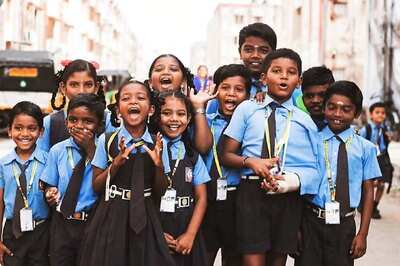
views
Mumbai is preparing to launch its first underground metro line in July 2024, which would be a game changer in its transportation network.
This new metro line spans 33.5 kilometres beneath the bustling city streets and promises to reduce traffic congestion drastically.
The Mumbai Metro Rail Corporation (MMRC) has committed over Rs 37,000 crores in this ambitious project, which promises to alleviate the city’s chronic traffic problems.
Mumbai’s First Underground Metro: Here’s More About It
The underground metro project includes a 33.5-kilometer tunnel that begins at Aarey Colony and connects 27 stations, 26 of which are underground, as per reports.
The stations are Vidhan Bhavan, Churchgate, CST Metro, Kalabadevi, Mumbai Central Metro, Mahalaxmi, Cuffe Parade, Hutatma Chowk, Science Museum, Acharya Atre Chowk, Domestic Airport, Sahar Road, Girgaon, Grant Road, Worli, Siddhivinayak, Dadar, Sitaladevi, Dharavi, BKC, Vidyanagari, Santacruz, International Airport, Marol Naka, MIDC, SEEPZ, and Aarey Depot.
When it rains, traffic in Aarey and BKC, two areas of Mumbai, is particularly congested.
Also, the extensive digging work, spanning 56 kilometres of land, began in 2017 but was halted during the COVID-19 outbreak.
The first section, which is slated to open in July, runs from Aarey Colony to BKC (Bandra-Kurla Complex), where commuters face significant traffic congestion. However, even though Mumbai already has two metro projects, none have provided a significant answer to the city’s traffic woes until now.
The metro will run 260 services every day, with one every few minutes between 6:30 am and 11:00 pm, reports add. Commuters can save significant time compared to driving, as the metro can reportedly reach speeds of up to 90 km per hour. A 35-kilometer commute that would normally take more than two hours by car will take only 50 minutes by metro.
The first phase of the project is scheduled to begin in July, but it is expected that the full project—including the second phase of the tunnel—will be completed over the next eight months, offering even more improvements to Mumbai’s transit system.



















Comments
0 comment